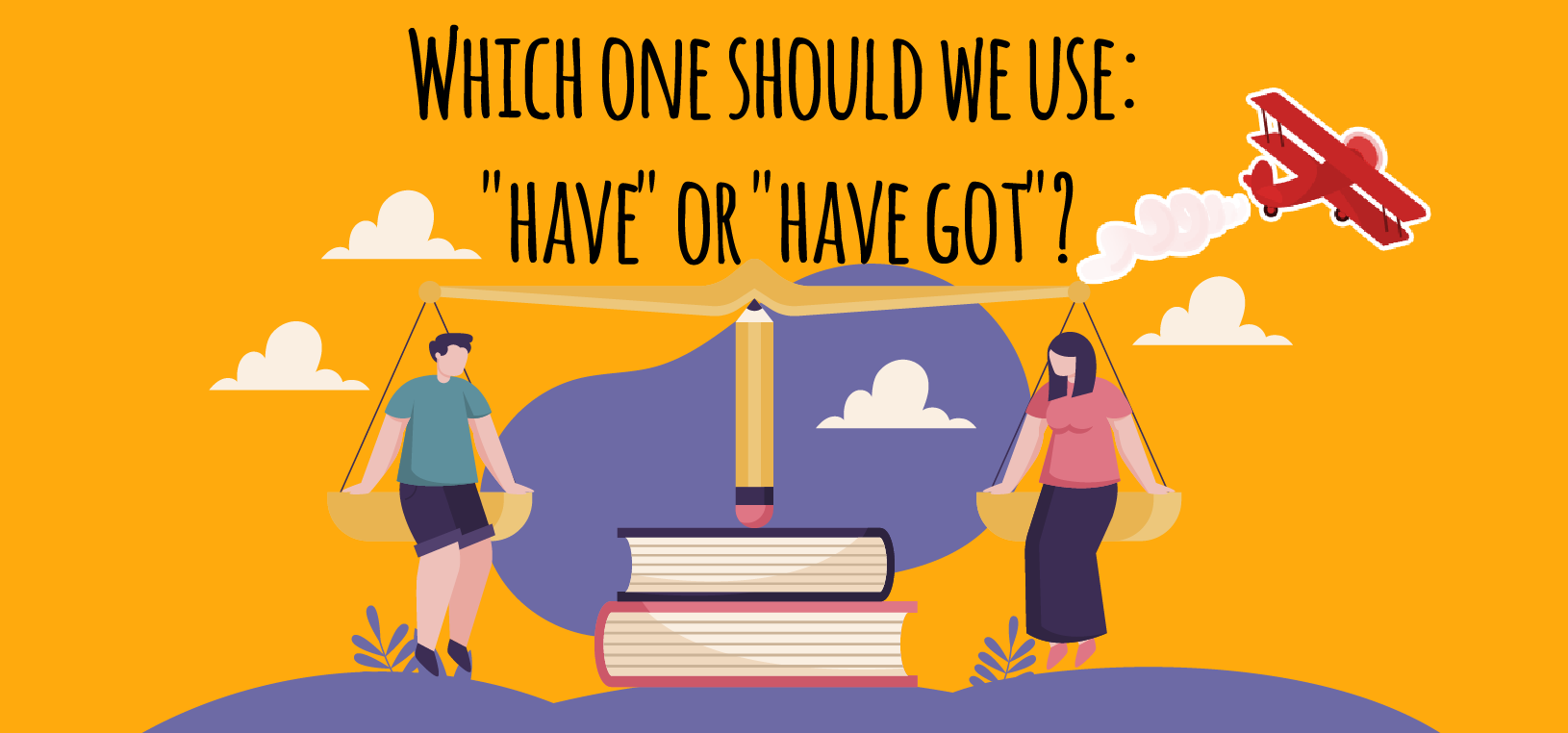Which one should we use: “have” or “have got”?

Which one should we use: “have” or “have got”?
ÍNDICE DE CONTENIDOS
Students often want to know if have and have got are the same. They want to know which one to use and if they are interchangeable. “Can we use any of them whenever we want?”
The answer is that they both have the same meaning when we want to express possession of something. And yes, they are very often interchangeable. However, there are some important differences in grammar in use between these verbs that we are going to reveal.
When should we use it?
When we talk about possession, relationships, diseases and characteristics of people or things that we can use , have or have got (we have or have). The have got have shapes are more common in a casual style . Have has the same meaning as have got and both are used as present tense.
This is what to remember if you decide to use:
- Have got is for spoken English
- Use have in your formal written English (business correspondence, etc.).
Use contractions with have got
If you want to use have got when you speak, remember to use contractions (short forms) whenever possible. Don’t use the completed forms. You should say:
- “I’ve got” (I have)
- “I haven’t got”
- “He’s got” (he has)
- “He hasn’t got, etc.” (he doesn’t have, etc).
Some more examples of contractions with have got are:
- We’ve got; (we have);
- We haven’t got; (we do not have)
- Everyone’s got; (everyone has);.
- It’s got; (It has);
- It hasn’t got; (It has not)
- They’ve got, etc (they have, etc)
What are the differences?
A simple way to express possession, relationships and obligations in English is to use the verb “to have”. However, especially in spoken English, we can often hear the alternative “have got” as well. Regarding this, there are some differences that must be taken into account, such as the fact that “have” is the auxiliary in “have got”:
I have “Tengo” is an elegant and grammatically correct construction. For example, I have a gift for you is the perfect present, which means it is a completed action. … I’ve got “I have” is a contraction of I have got “I have” and – it can be used in a sentence like this – I have got to take a bath “Tengo que tomar un baño”. It is a perfect present.
The answer is that they both have the same meaning when we want to express possession of something . And yes, they are very often interchangeable.
Different questions and negative forms
Special care must be taken with its use in a negative way. Surely on occasion we have seen written “I haven’t a car”, well, this is incorrect. Let’s see how negative sentences are constructed:
- With have got we do not use auxiliary verbs such as do (do) and not do (don’t)
- Have only exists in the simple present. We do not use it in continuous, past or future tense.
- Simple present tense: He’s got a problem.
- Simple past: He had a problem
- Simple future: He’ll have a problem.
When I can’t use “we have”
In some other languages (like Spanish or German, for example) questions can be formed using only the main verb (that is, no auxiliary verb). In English, this is generally not possible. In case an auxiliary verb is already present, it must be used (it would be ” have” in case of “have got” (tener en caso de tener)
When have is a substitute word for another verb, we cannot interchange it . For example, instead of taking a shower, we sometimes say to take a shower, or instead of having lunch we say let’s have lunch. Let’s see:
- Almuerzo a las 12 en punto. (I have lunch at 12 o’clock)
- Tengo almuerzo (I’ve got lunch)
- Yo tomo un baño todos los días. (I have a bath every day)
In conclusion
Generally English learners eventually use these verbs to express possession. Both forms can express what we possess, but also the relationships we have.
And all this review is motivated because you want to obtain an official title, here we leave you the closest calls.


